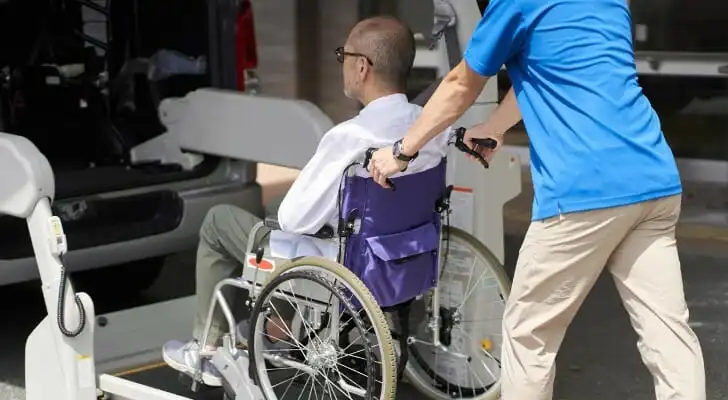

People who have traditional long-term care insurance get no benefit from the coverage if they die without ever needing long-term care. However, some kinds of long-term care insurance let a surviving spouse or partner use unused benefits. Others provide for partial or full return of the premium if the original policyholder dies without using the benefits. These variations cost more than traditional life insurance, however. A financial advisor can help untangle the costs and benefits of long-term care insurance. Try using our free advisor matching tool today to find advisors who serve your area.
Long-term care insurance helps pay for healthcare costs that aren’t covered by Medicare or conventional health policies. It’s designed to help disabled people and those with chronic health conditions pay for the costs of assistance with activities such as dressing, bathing and eating. It can also cover nursing care but isn’t designed to pay for medical care of the type covered by health insurance, such as doctor visits, lab tests and hospital stays. Long-term care insurance can cover expenses arising from in-home care as well as bills for living in nursing homes and assisted living facilities.
Long-term care can be quite expensive, with monthly median costs ranging from $1,690 for adult day care to $9,034 for a private room in a nursing home, according to long-term care insurance company Genworth. These costs, which aren’t typically covered by Medicare, can quickly drain the nest egg of a retiree without long-term care cover.
Insurance to pay long-term care costs can be comparatively inexpensive. The average annual premium for a 55-year-old man ranges from $950 to $3,685, depending on the policyholder’s health and the size of the benefit, according to the American Association for Long-Term Care Insurance (AALTCI), an insurance industry organization.
However, half of long-term care insurance policyholders die before ever using their benefits, according to the AALTCI. For the majority who purchase coverage that doesn’t begin paying until 90 days after the covered individual begins needing long-term care, only 35% ever use their benefits, AALTCI found.
One way to get some value from unused long-term care insurance policy benefits is to get a policy with shared spousal benefits. This is a type of traditional long-term care insurance that covers a couple and allows a surviving spouse to take advantage of any unused benefits remaining after the other spouse dies.
If the deceased spouse used all the policy’s benefits before dying, then the surviving spouse would get no benefits from that policy. However, if either spouse uses all the benefits available to them, he or she can then begin using unused benefits from the other spouse’s coverage. One advantage of spousal benefit policies is that the likelihood of the policy’s benefits being used is much higher when two people are covered.

Policies that provide for a return of premium are also an option to get some benefit from paying for unused long-term care insurance coverage. These policies, which blend long-term care coverage with life insurance that has a death benefit, will pay back some portion of the premiums on an unused policy when the policyholder dies.
These hybrid policies vary significantly in the number of premiums they will return. Some return all the premiums plus an additional death benefit. Others will return only the amount of the premiums minus any claims that have been made under the policy. Still, others offer a graded return that decreases as the policyholder gets older.
There are other types of policies and investments that you can use to get long-term care benefits. The two most popular options will provide a payout for you if you need long-term care or you will be covered for long-term care in a hybrid policy that goes along with another type of coverage. Let’s take a look at how each of the two most popular alternatives works.

Many buyers of long-term care insurance die before making any claims under the policy. If they purchased traditional long-term care insurance coverage, this means they have paid their premiums without receiving any financial benefit. There are other options to help you get more out of your policy, though. For example, policies with shared spousal benefits will, however, allow a surviving spouse to make use of any unused benefits. Return of premium policies offer another option to get benefits from unused long-term care insurance policies, but they are significantly more expensive.
Photo credit: ©iStock.com/PonyWang, ©iStock.com/kazuma seki, ©iStock.com/kazuma seki
Mark HenricksMark Henricks has reported on personal finance, investing, retirement, entrepreneurship and other topics for more than 30 years. His freelance byline has appeared on CNBC.com and in The Wall Street Journal, The New York Times, The Washington Post, Kiplinger’s Personal Finance and other leading publications. Mark has written books including, “Not Just A Living: The Complete Guide to Creating a Business That Gives You A Life.” His favorite reporting is the kind that helps ordinary people increase their personal wealth and life satisfaction. A graduate of the University of Texas journalism program, he lives in Austin, Texas. In his spare time he enjoys reading, volunteering, performing in an acoustic music duo, whitewater kayaking, wilderness backpacking and competing in triathlons.
Read More About Insurance



More from SmartAsset
SmartAsset Advisors, LLC ("SmartAsset"), a wholly owned subsidiary of Financial Insight Technology, is registered with the U.S. Securities and Exchange Commission as an investment adviser. SmartAsset's services are limited to referring users to third party advisers registered or chartered as fiduciaries ("Adviser(s)") with a regulatory body in the United States that have elected to participate in our matching platform based on information gathered from users through our online questionnaire. SmartAsset receives compensation from Advisers for our services. SmartAsset does not review the ongoing performance of any Adviser, participate in the management of any user's account by an Adviser or provide advice regarding specific investments.
We do not manage client funds or hold custody of assets, we help users connect with relevant financial advisors.
This is not an offer to buy or sell any security or interest. All investing involves risk, including loss of principal. Working with an adviser may come with potential downsides such as payment of fees (which will reduce returns). There are no guarantees that working with an adviser will yield positive returns. The existence of a fiduciary duty does not prevent the rise of potential conflicts of interest.